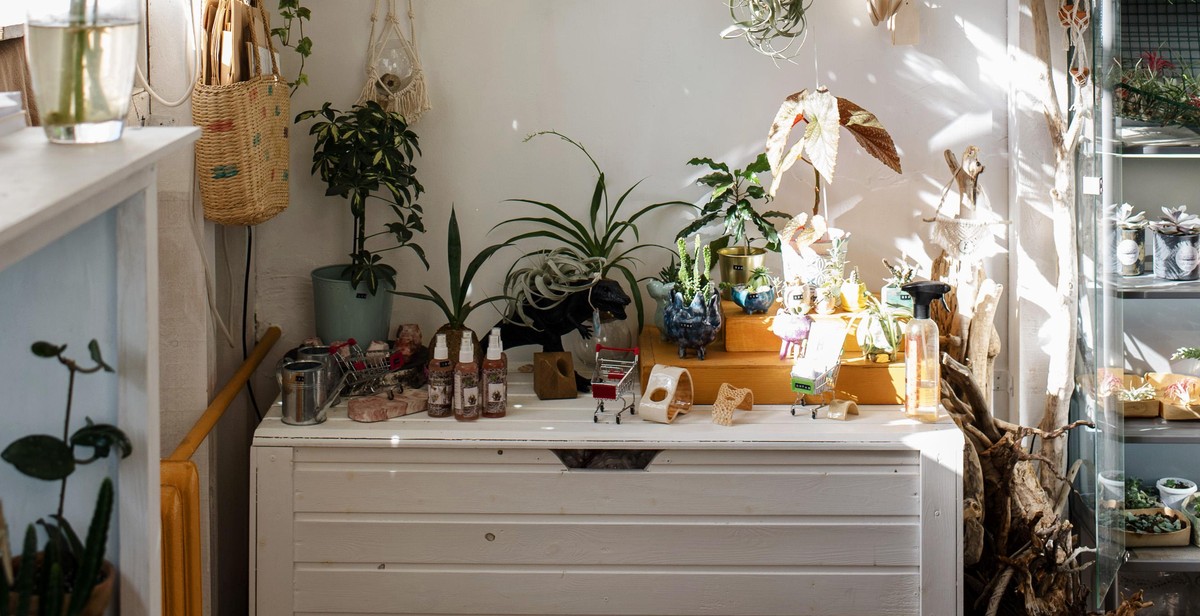Understanding Your Love Style: A Love Guru’s Perspective
Love is a complex emotion that affects every aspect of our lives. As a love and relationships psychology guru, I have spent years studying the intricacies of human emotions and behavior when it comes to love. Through my research, I have discovered that understanding your love style is crucial to building and maintaining a healthy relationship.
My Personal Experience with Love Styles
Personally, I have had my fair share of experiences with different love styles. I used to be someone who believed in the idea of ‘love at first sight’ and was a hopeless romantic. I was convinced that finding a perfect partner was the key to my happiness. However, over time, I realized that this approach was not working for me.
It wasn’t until I started studying love and relationships psychology that I understood the concept of different love styles and how they affect our relationships. I discovered that my love style was anxious-preoccupied, which means I had a constant fear of abandonment and a need for constant reassurance from my partner.
Understanding my love style helped me to work on myself and improve my relationships. I learned how to communicate my needs effectively and how to set healthy boundaries.
In this article, I will share my insights on different love styles and how they can impact your relationships. I will also provide tips on how to identify your love style and how to work on building a healthy relationship.

What are Love Styles?
Love styles are patterns of behavior and attitudes that people adopt when it comes to romantic relationships. These patterns are often influenced by early childhood experiences, cultural norms, and personal beliefs. Understanding your love style can help you navigate your current relationships and form healthier connections in the future.
Defining Love Styles
There are many different love styles, but some of the most common ones include:
- Eros: This style is characterized by intense passion and physical attraction.
- Ludus: People with this style view love as a game and enjoy the thrill of the chase.
- Pragma: This style is practical and logical, with a focus on finding a partner who meets specific criteria.
- Mania: This style is marked by obsession, jealousy, and possessiveness.
- Agape: People with this style prioritize the well-being and happiness of their partner above their own.
- Storge: This style is characterized by a deep, affectionate bond that develops slowly over time.
Different Love Styles
Each love style has its own strengths and weaknesses, and there is no “right” or “wrong” way to love. However, some styles may be more compatible with certain partners or situations than others. For example, someone with a Ludus style may struggle in a long-term, committed relationship, while someone with a Storge style may find it difficult to connect with someone who is more reserved or emotionally distant.
| Love Style | Strengths | Weaknesses |
|---|---|---|
| Eros | Passionate, romantic, exciting | Can be impulsive, short-lived, and superficial |
| Ludus | Fun, playful, adventurous | May struggle with commitment and emotional intimacy |
| Pragma | Practical, rational, realistic | May prioritize practical considerations over emotional connection |
| Mania | Intense, passionate, dedicated | Can be possessive, jealous, and emotionally draining |
| Agape | Selfless, compassionate, empathetic | May neglect their own needs and desires in favor of their partner’s |
| Storge | Stable, affectionate, nurturing | May struggle with expressing emotions or adapting to change |

Why Understanding Your Love Style is Important
As a love and relationships psychology guru, I have come across countless individuals who struggle with maintaining healthy and satisfying relationships. One of the key factors that contribute to this struggle is a lack of understanding of their own love style and how it impacts their relationships.
The Impact of Love Styles on Relationships
Love styles are the ways in which we express and experience love in romantic relationships. These styles are shaped by our upbringing, experiences, and personality traits. Understanding your love style is crucial because it determines how you communicate, express affection, and handle conflicts in your relationships.
For example, individuals with an anxious love style tend to be clingy, insecure, and seek constant reassurance from their partners. On the other hand, individuals with an avoidant love style tend to avoid intimacy, struggle with commitment, and have a fear of vulnerability.
Identifying Your Love Style
Identifying your love style is the first step towards building healthier and more satisfying relationships. This can be done through self-reflection, seeking the help of a therapist, or taking online quizzes that assess your love style.
Once you have identified your love style, you can work towards understanding how it impacts your relationships and take steps towards improving your communication, expressing affection, and handling conflicts in a healthy and productive way.
Overall, understanding your love style is crucial for building and maintaining healthy and satisfying relationships. By identifying your love style and working towards improving it, you can create a strong foundation for a fulfilling and long-lasting relationship.

Attachment Theory and Love Styles
As a love and relationships psychology guru, I have come to understand the importance of Attachment Theory in understanding love styles. Attachment Theory is a psychological model that explains how the relationships we have with our primary caregivers in childhood influence our patterns of behavior in adulthood.
The Basics of Attachment Theory
Attachment Theory was first introduced by John Bowlby, a British psychoanalyst, in the 1950s. According to the theory, our early experiences with our caregivers shape the way we view ourselves and others. These experiences form our attachment styles, which can be categorized into three main types:
- Secure Attachment: People with secure attachment styles feel comfortable with intimacy and are able to form healthy relationships.
- Avoidant Attachment: People with avoidant attachment styles tend to avoid intimacy and may struggle with emotional connection.
- Anxious Attachment: People with anxious attachment styles crave intimacy but may worry about rejection and abandonment.
How Attachment Styles Influence Love Styles
Our attachment styles influence the way we approach romantic relationships and can shape our love styles. For example, someone with a secure attachment style may have a healthy love style, characterized by trust, communication, and emotional intimacy. On the other hand, someone with an avoidant attachment style may struggle with commitment and emotional vulnerability in their love style. And someone with an anxious attachment style may have a love style characterized by jealousy, neediness, and insecurity.
| Attachment Style | Love Style |
|---|---|
| Secure Attachment | Healthy Love Style |
| Avoidant Attachment | Uncommitted Love Style |
| Anxious Attachment | Jealous Love Style |
Understanding your attachment style can help you identify patterns in your love style and work towards developing a healthier approach to relationships.

The Four Love Styles
Love is a complex and multifaceted emotion that can take on many different forms. In fact, according to the Greek philosopher Plato, there are four distinct love styles that people can experience:
Eros
Eros is the passionate and intense love that is often depicted in movies and novels. This type of love is characterized by strong physical attraction and a desire for intimacy and closeness. People who experience Eros love tend to be very romantic and affectionate, and they often prioritize their romantic relationships above all else.
Storge
Storge is a more gentle and nurturing type of love that is often found in long-term relationships and friendships. This type of love is based on mutual trust and respect, and it tends to grow slowly over time. People who experience Storge love tend to be patient and understanding, and they value loyalty and commitment above all else.
Ludus
Ludus is a playful and flirtatious type of love that is often associated with casual dating and short-term relationships. This type of love is characterized by a lack of commitment and a desire for excitement and novelty. People who experience Ludus love tend to be adventurous and spontaneous, and they often enjoy the thrill of the chase more than the actual relationship itself.
Pragma
Pragma is a practical and logical type of love that is often found in arranged marriages and long-term partnerships. This type of love is based on shared values and goals, and it tends to be more focused on building a stable and secure future together than on passionate romance. People who experience Pragma love tend to be pragmatic and goal-oriented, and they value stability and security above all else.
| Love Style | Characteristics |
|---|---|
| Eros | Passionate, intense, romantic |
| Storge | Gentle, nurturing, loyal |
| Ludus | Playful, flirtatious, adventurous |
| Pragma | Practical, logical, goal-oriented |

Understanding Your Love Style
As a love and relationships psychology guru, I have seen that understanding your love style is a crucial step towards building a healthy and fulfilling relationship. Love style refers to the way you emotionally connect and bond with your partner. Every individual has a unique love style that is shaped by their upbringing, experiences, and personality traits.
Identifying Your Primary Love Style
Identifying your primary love style is the first step towards understanding your emotional needs in a relationship. There are five primary love styles:
- Eros: Passionate and intense love style characterized by physical attraction and intense emotional connection.
- Ludus: Playful and flirtatious love style that emphasizes fun and excitement over emotional connection.
- Storge: Stable and predictable love style that emphasizes friendship and companionship over passion and excitement.
- Pragma: Practical and logical love style that emphasizes compatibility and shared values over emotional connection.
- Mania: Obsessive and possessive love style characterized by intense jealousy and emotional volatility.
Identifying your primary love style can help you understand your emotional needs and preferences in a relationship. It can also help you recognize potential conflicts and challenges in your relationships.
Exploring Your Secondary Love Style
In addition to your primary love style, you may also have a secondary love style that influences your emotional needs and preferences in a relationship. Your secondary love style can either complement or conflict with your primary love style.
For example, if your primary love style is Eros, characterized by intense passion and emotional connection, your secondary love style may be Storge, which emphasizes stability and companionship. This combination can result in a relationship that is both passionate and emotionally fulfilling.
On the other hand, if your primary love style is Mania, characterized by possessiveness and jealousy, and your secondary love style is Ludus, which emphasizes fun and excitement, you may struggle to maintain a healthy and fulfilling relationship.
Exploring your secondary love style can help you understand how it influences your emotional needs and preferences in a relationship. It can also help you recognize potential conflicts and challenges in your relationships.
| Primary Love Style | Secondary Love Style | Potential Relationship Outcome |
|---|---|---|
| Eros | Storge | Passionate and emotionally fulfilling relationship |
| Mania | Ludus | Struggle to maintain a healthy and fulfilling relationship |

Working with Your Love Style
Understanding your love style is the first step towards improving your love life. Once you know your love style, you can work towards improving it and making it work for you. Here are some benefits of knowing your love style:
The Benefits of Knowing Your Love Style
- Improved Communication: Knowing your love style can help you communicate more effectively with your partner.
- Deeper Understanding: It can help you understand yourself and your partner on a deeper level.
- Reduced Conflict: Understanding your love style can help reduce conflicts in your relationship by helping you recognize and address potential issues before they become major problems.
- Better Compatibility: Knowing your love style can help you find a partner who is more compatible with you.
If you want to improve your love style, here are some tips:
How to Improve Your Love Style
- Self-Reflection: Take time to reflect on your past relationships and identify patterns or behaviors that may not be serving you well.
- Learn: Educate yourself on different love styles and what they entail. This will help you recognize your own and your partner’s love style.
- Practice: Practice healthy communication, boundaries, and self-care in your relationship.
- Be Open: Be open to feedback from your partner and willing to make changes where necessary.
| Tip: | It’s important to remember that improving your love style is a process. Be patient with yourself and your partner as you work towards a healthier, happier relationship. |

Conclusion
Understanding your love style is crucial in having a successful and fulfilling relationship. As a love and relationships psychology guru, I have seen firsthand how knowing your love style can make or break a relationship. It is important to recognize that each individual has their own unique love style, shaped by their past experiences and upbringing.
Through self-reflection and exploration, you can identify your love style and work towards improving it. If you have an anxious attachment style, you can learn to communicate your needs and boundaries effectively. If you have an avoidant attachment style, you can work towards becoming more comfortable with intimacy and emotional vulnerability.
It is also important to find a partner who has a compatible love style. This does not mean that you need to have the same love style, but rather that you are able to understand and respect each other’s needs and boundaries.
Remember, understanding your love style is a journey and it takes time and effort. But with patience and self-compassion, you can build a healthy and fulfilling relationship that will last a lifetime.
- Identify your love style through self-reflection and exploration
- Work towards improving your love style by communicating your needs and boundaries
- Find a partner with a compatible love style who understands and respects your needs and boundaries
- Remember that understanding your love style is a journey that takes time and effort
| Love Style | Characteristics |
|---|---|
| Anxious Attachment | Clings to partner, fears abandonment, seeks constant reassurance |
| Avoidant Attachment | Fears intimacy, emotionally distant, independent |
| Secure Attachment | Comfortable with intimacy, communicates effectively, trusts partner |
